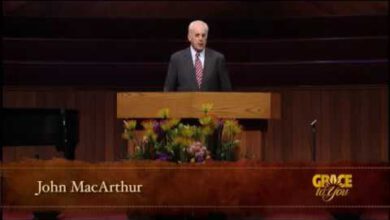The End of the Universe, Part 1 (2 Peter 3)
A few weeks ago, I shared a message about the theology of creation, and I mentioned that I intended to deliver two messages: one about the beginning and the other about the end. These two concepts—the theology of creation and the theology of uncreation—focus on the origin and the ultimate end of the universe. We explore how it all began and how it will all conclude.
It is only God who knows how it all began, for He alone was present at the moment of creation. Similarly, it is God alone who knows how everything will end, because He is the only one who understands and determines the future. Just as God has determined the past and is shaping the present, He also governs what lies ahead. Therefore, to truly understand the origins and conclusions of the universe, we must turn to the revelation that God has provided to us.
All we know about creation comes from what God has revealed. Likewise, our understanding of the end times is rooted in His teachings. As outlined in Genesis chapters 1 and 2, God gave us a clear account of the universe’s creation. He has also provided explicit descriptions of the universe’s destruction. Several passages reference the end of the universe, with one particularly detailed and prominent example found in the second epistle of Peter, chapter 3.
Let’s open our Bibles to 2 Peter 3 and follow along as I read from verses 1 to 13:
“This is now, beloved, the second letter I am writing to you, in which I am stirring up your sincere mind by way of reminder, that you should remember the words spoken beforehand by the holy prophets and the commandment of the Lord and Savior spoken through your Apostles. Know this, first of all, that in the last days, mockers will come, following their own lusts, and saying, ‘Where is the promise of His coming? For ever since the fathers fell asleep, all continues just as it was from the beginning of creation.’ When they maintain this, it escapes their notice that by the Word of God, the heavens existed long ago, and the earth was formed out of water and by water, through which the world at that time was destroyed, being flooded with water.
But the present heavens and earth, by His Word, are being reserved for fire, kept for the day of judgment and the destruction of ungodly men. But do not let this one fact escape your notice, beloved, that with the Lord one day is like a thousand years, and a thousand years is like one day. The Lord is not slow in fulfilling His promise, as some count slowness, but is patient with you, not wishing for anyone to perish but for all to come to repentance.
But the day of the Lord will come like a thief, in which the heavens will pass away with a roar, and the elements will be destroyed with intense heat, and the earth and its works will be burned up. Since all these things are to be destroyed in this way, what kind of people ought you to be in holy conduct and godliness, looking for and hastening the coming of the day of God, because of which the heavens will be destroyed by fire and the elements will melt with intense heat! But according to His promise, we are looking for new heavens and a new earth in which righteousness dwells.”
This passage provides a clear and unmistakable account of the end of creation. To give you some context, Peter’s epistle warns about false teachers. Chapter 2 contains a broad condemnation of false teachers, which parallels the letter written by Jude, where Peter focuses on the future arrival of false teachers, and Jude highlights their presence in the present. In chapter 3, Peter addresses a common attack by these false teachers: the truth that this world and the universe are destined to end with the return of Jesus Christ.
What I’ve read is unmistakably clear about both the beginning and the end of creation. The Word of God brought the universe into existence, and it is by His Word that the end will come. As I’ve often said, this planet is disposable—and more than that, this universe is disposable as well.
